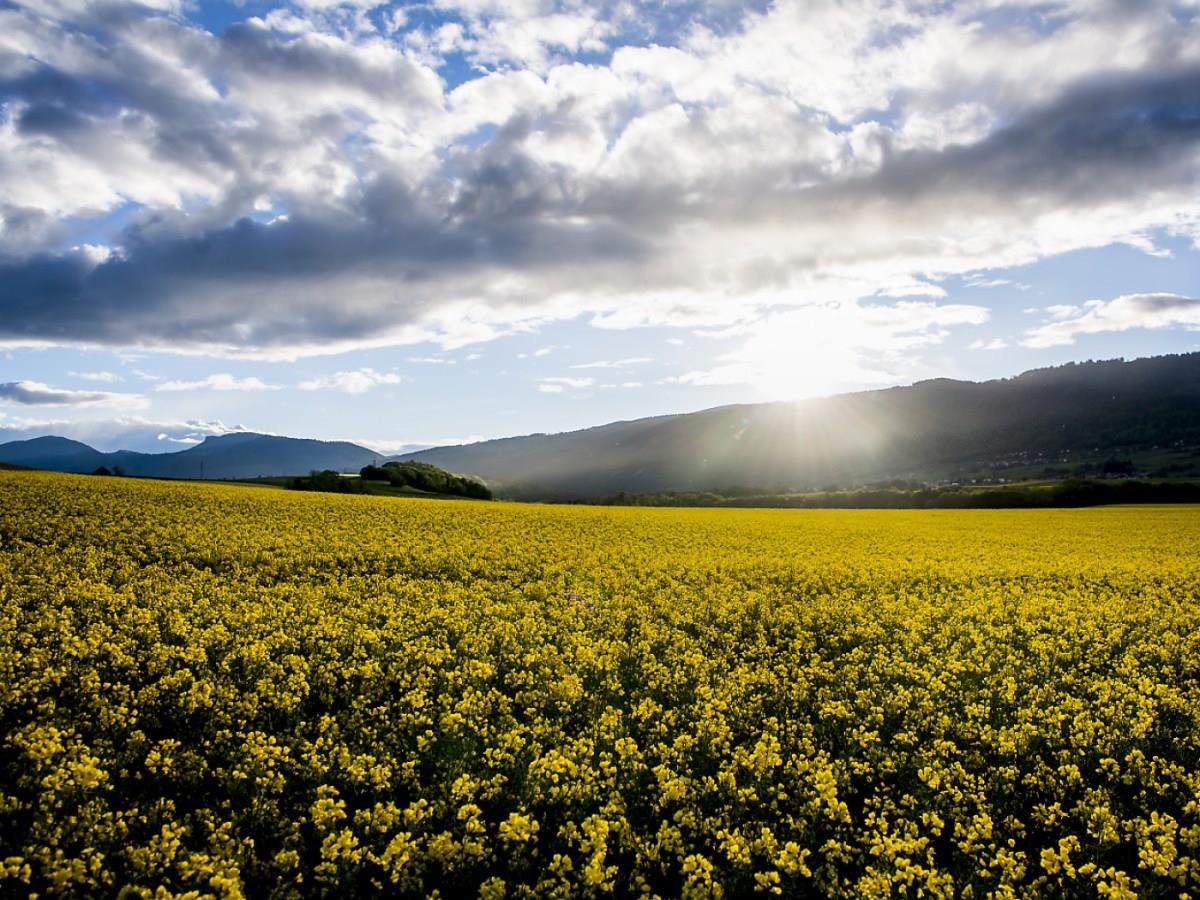
Rapeseed Restrictions Cause Problems For Swiss Farmers
-
Deutsch
de
Einschränkungen machen den Schweizer Rapsbauern zu schaffen
Original
Read more: Einschränkungen machen den Schweizer Rapsbauern zu schaffe
+Get the most important news from Switzerland in your inbox
This is a worrying development that jeopardises self-sufficiency in rapeseed oil, according to the Swiss Grain Producers Association.
The bright yellow Swiss rapeseed fields are under threat, the association writes. The area under cultivation has fallen by 11% compared to 2023. This decline is not due to a lack of interest on the part of producers, but to excessive restrictions, it says.
From sowing in August to harvesting in July, rapeseed is infested with pests. The plants often cannot survive without pesticides. Organic rapeseed oil therefore only accounts for 1% of the total harvest.
Various research projects have been carried out on pest control without the use of chemicals, but these have not produced a satisfactory solution. For the Swiss Grain Producers Association, it is therefore understandable that half of the producers who have reduced their production explain this with a lack of available pesticides.
+ Swiss authorised record number of 'banned' pesticides last year
Following the ban on the active ingredients used until a few years ago, the insecticide cyantraniliprole would be an interesting alternative for farmers and the environment. However, the Federal Food Safety and Veterinary Office (FSVO) recently rejected a corresponding application from cereal producers, even though this active ingredient is authorised in the EU.
Motivating producersAccording to the association, it is absurd that rapeseed oil has to be imported in view of the major restrictions. And this from countries in which this pesticide – and even stronger products – are authorised and also used.
Contacted by the Swiss News Agency Keystone-SDA, Pierre-Yves Perrin, director of the Swiss Grain Producers Association, very much hopes that the FSVO will soon relax its guidelines. The rapeseed market is promising, but it is no longer clear how to motivate producers, he said.
The number of rapeseed producers has fallen from 6,400 three years ago to 5,600 this year.
Translated from German by DeepL/ts
How we work
Legal Disclaimer:
MENAFN provides the
information “as is” without warranty of any kind. We do not accept
any responsibility or liability for the accuracy, content, images,
videos, licenses, completeness, legality, or reliability of the information
contained in this article. If you have any complaints or copyright
issues related to this article, kindly contact the provider above.


















Comments
No comment